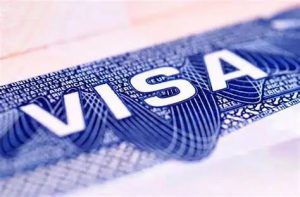As China gradually tightens its policies on foreign nationals applying for permanent residency, many expatriates are concerned, particularly those applying through marriage and without employment. Will they still be able to secure permanent residency as smoothly as before? While not having a job does not automatically result in a failed application, it certainly adds challenges to the process.
We successfully submitted a spousal family reunification permanent residency application this week, and also helped a German family of three secure their permanent residency cards. So, there’s no need to worry too much. In this article, we will analyze these challenges and provide targeted solutions to help expatriates increase their chances of success in the application process.

1 Challenges for Foreign Nationals Without Employment Applying for Permanent Residency in China
01 Insufficient Financial Independence
Foreign nationals without a job are often unable to provide income verification from a Chinese employer. The immigration authorities may question their ability to support themselves and whether they will become a public burden. Financial independence is a critical factor in China’s permanent residency applications.
02 Concerns Over Stability and Continuity
Without a job, immigration authorities may doubt the applicant’s long-term stability in China. This is particularly concerning during the visa transition process, where applicants may face issues with unstable status, which could affect the approval of their permanent residency application.

03 Lack of Medical Insurance Coverage
Many expatriates in China rely on employer-provided health insurance. However, foreign nationals without employment may lack sufficient health insurance, which can negatively impact their application for permanent residency. Immigration authorities typically expect applicants to have adequate medical coverage to avoid becoming a public burden.
04 Insufficient Social Integration
Foreign nationals without a job might have fewer connections within Chinese society, leading to a lower degree of integration. The immigration authorities are increasingly concerned with how well expatriates integrate into local society, and a lack of social connections may hinder the approval of their permanent residency application.

05 Cultural Adaptation Issues
When evaluating an applicant, immigration authorities not only consider their economic and social situation but also assess their cultural adaptability. If an applicant has few ties to Chinese society, struggles with language, or exhibits poor cultural integration, the authorities may question their long-term intentions to reside in China.
06 Lack of Family Support
If the applicant’s spouse is employed in an unstable position or if family members do not reside in China long-term, immigration authorities may question the applicant’s support system, which can impact the approval of their permanent residency application.
2 Solutions to Address These Challenges
01 Proof of Financial Capability
Although an applicant may not have a job, they can demonstrate their financial capability by providing alternative asset documentation such as bank statements, property ownership, or proof of fixed investment income. These can serve as evidence of financial independence.
Applicants can demonstrate their stability in China by providing long-term residence records, rental contracts, and family relationship certificates. If a spouse or family member has stable employment in China, presenting proof of their employment can also enhance the application’s stability.
For foreign nationals without employer-provided health insurance, purchasing international health insurance or enrolling in domestic commercial health insurance is an effective solution. This not only proves the applicant’s ability to cover medical expenses but also meets the immigration authority’s health insurance requirements.
04 Social Integration Plan
Applicants can demonstrate their efforts to integrate into Chinese society by showcasing participation in Chinese language courses, community activities, or volunteer work. These efforts signal a willingness to assimilate into Chinese society, which can significantly improve the chances of a successful permanent residency application.
05 Proof of Cultural Adaptation
To demonstrate cultural adaptability, applicants can provide evidence of participating in Chinese language courses or cultural events. These actions can bolster the immigration authorities’ confidence in their ability to integrate into Chinese society.
06 Proof of Family Support
If the applicant has a spouse or other family members who have lived in China for an extended period, they can provide proof of the spouse’s employment, tax records, or social activities as evidence of family support and stability. These documents can also serve as evidence of social integration.

Not having a job does not mean an automatic failure in applying for permanent residency. The key lies in adequate preparation and addressing the challenges with targeted measures. By providing financial capability proof, demonstrating stability and cultural adaptability, purchasing health insurance, and showing family support, foreign nationals can overcome these challenges and improve their chances of success in the application process. If you have any further questions about applying for permanent residency, feel free to contact our visa consultant.





